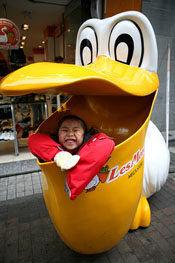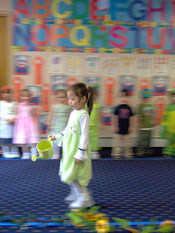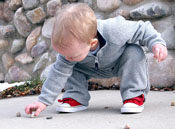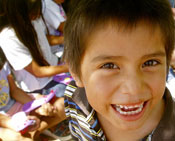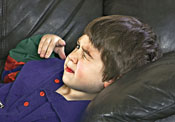To play this game you must first decide which one of you is to be the Bird-catcher; the other players then each choose the name of a bird, but no one must choose the owl, as it is forbidden.
All the players then sit in a circle with their hands on their knees, except the Bird-catcher, who stands in the center, and tells a tale about birds, taking care to specially mention the ones he knows to have been chosen by the company. As each bird’s name is called, the owner must imitate its note as well as he can, but when the owl is named, all hands must be put behind the chairs, and remain there until the next bird’s name is mentioned, When the Bird-catcher cries “all the birds” the players must together give their various imitations of birds. Should any player fail to give the cry when his bird is named, or forget to put his hands behind his chair, he has to change places with Bird-catcher.
Image © Tom@HK @ Flickr, Attribution
Games for All Occasions by Mary E. Blain
